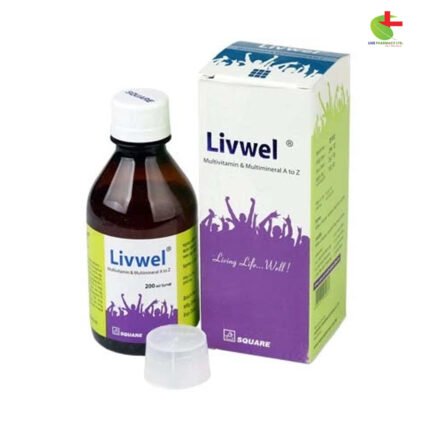Tridyl Syrup
125.00৳ Pcs
- Tridyl is a reliable adjunct treatment for diverse forms of parkinsonism, often complementing levodopa therapy.
- Its direct inhibition of the parasympathetic nervous system and relaxation of smooth musculature help control extrapyramidal disorders induced by specific central nervous system drugs.
- Personalized dosage regimens ensure optimal effectiveness, particularly for elderly patients.
- Despite its potent effects, ongoing research aims to fully elucidate Tridyl’s mechanism of action, underscoring its importance in Parkinson’s disease management.
 Brand
Brand
|
Square Pharmaceuticals PLC |
|---|---|
 Generics
Generics
|
Trihexyphenidyl Hydrochloride |
 Type
Type
|
Syrup |
 Size
Size
|
50 ML |
Indications
Tridyl serves as an adjunct in the treatment of various forms of parkinsonism, including postencephalitic, arteriosclerotic, and idiopathic cases. It proves beneficial as adjuvant therapy alongside levodopa for these forms of Parkinsonism. Additionally, it effectively controls extrapyramidal disorders induced by central nervous system drugs like dibenzoxazepines, phenothiazines, thioxanthenes, and butyrophenones.
Description
Tridyl directly inhibits the parasympathetic nervous system while also inducing relaxation in smooth musculature. This effect is exerted both directly on the muscle tissue and indirectly through inhibition of the parasympathetic nervous system.
Pharmacology
Trihexyphenidyl acts as a non-selective antagonist of muscarinic acetylcholine receptors, with a higher affinity for the M1 subtype. Studies indicate its greater affinity for central muscarinic receptors in the cerebral cortex compared to peripheral ones. Additionally, it may modulate nicotinic acetylcholine receptor neurotransmission, indirectly enhancing dopamine release in the striatum. While it’s proven effective in treating Parkinson’s symptoms and other movement disorders, its precise mechanism of action remains to be fully understood.
Dosage & Administration
Dosage should be personalized, starting with a low initial dose and gradually increasing, especially for patients over 60 years old. The timing of administration with meals should be based on individual patient response. Abrupt withdrawal of treatment should be avoided to prevent acute exacerbation of symptoms.
Interaction
Various substances like cannabinoids, barbiturates, opiates, and alcohol may have additive effects with Tridyl, necessitating caution. Concurrent use with CNS depressants, monoamine oxidase inhibitors, or tricyclic antidepressants should be carefully monitored due to potential intensification of anticholinergic effects.
Contraindications
Trihexyphenidyl is contraindicated in patients with hypersensitivity to the drug or those with narrow-angle glaucoma, which may lead to blindness after prolonged use.
Side Effects
Common side effects include dry mouth, blurred vision, dizziness, mild nausea, or nervousness, experienced by 30 to 50 percent of patients. These reactions tend to diminish with continued treatment. Rare side effects include suppurative parotitis, skin rashes, dilatation of the colon, and psychiatric manifestations like delusions or hallucinations.
Pregnancy & Lactation
Use during pregnancy is advised only if clearly needed, with caution exercised during lactation due to potential suppression of lactation.
Precautions & Warnings
Patients should undergo a thorough evaluation before starting Tridyl therapy, particularly for those predisposed to angle closure or central nervous system diseases. Careful monitoring for signs of hyperthermia and neuroleptic malignant syndrome is essential.
Overdose Effects
Overdose may lead to central symptoms of atropine intoxication. Treatment involves symptomatic and supportive measures, with caution exercised in administering medications due to potential interactions.
Therapeutic Class
Antiparkinson drugs.
Storage Conditions
Store Tridyl in a dry place at temperatures not exceeding 30ºC, and protect from light.













Reviews
There are no reviews yet.